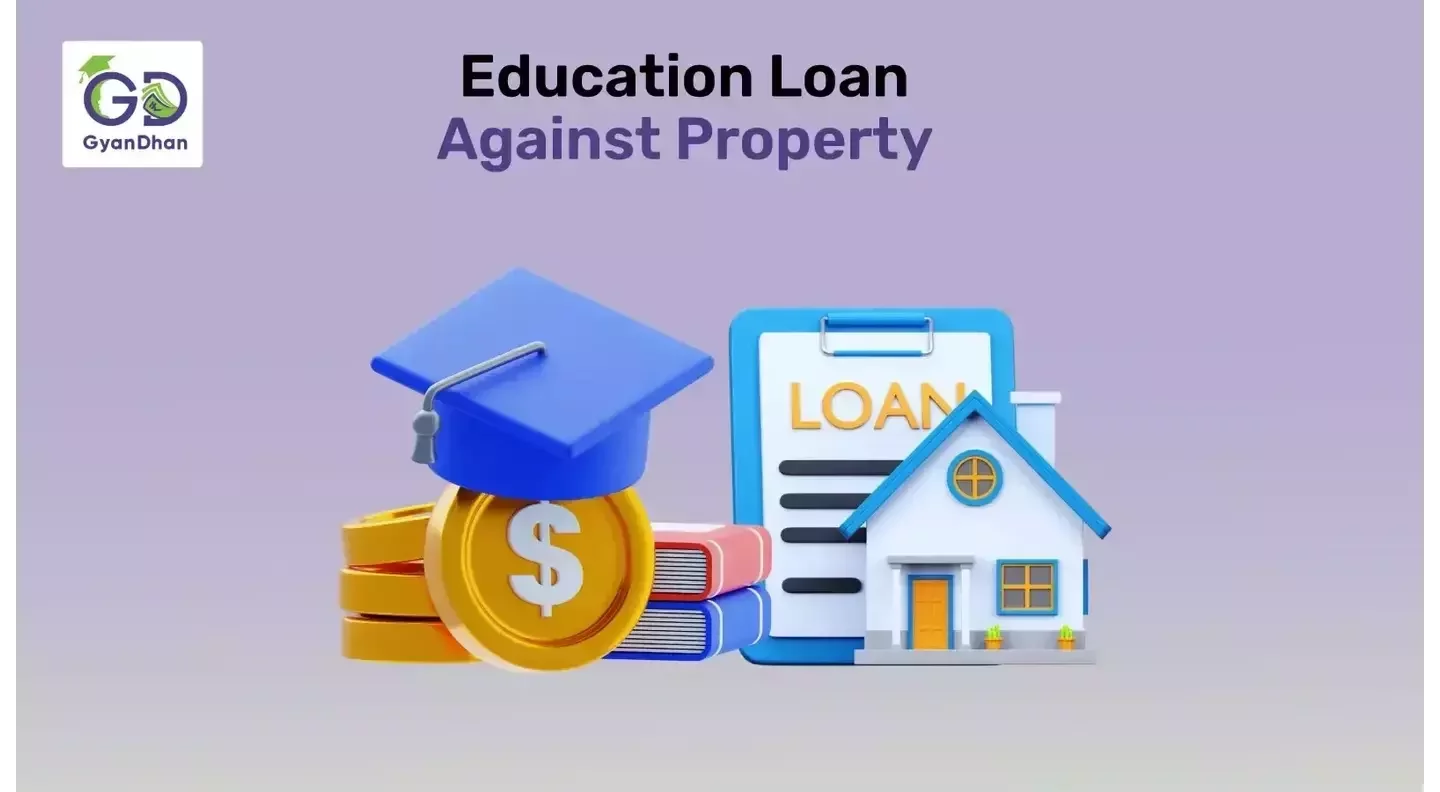Get instant loan offer suitable to your profile !


On this Page:
Read about the education loan against property. Know the features and process of applying for a study loan on the property for education in India and abroad.
Worried about arranging funds for your education? With a plethora of study loan options available in the market, you must not worry much! If you have a property to put as security, you can get an education loan at a lower interest rate for a longer loan tenure. A loan that can be taken by pledging property as a security is called a loan against property.
A loan against property (LAP) is a secured loan offered against a property mortgaged with the bank. This property can be a house, an owned land, or any other commercial premises. The loan amount sanctioned under the loan against property is determined based on the market value of the property, which remains as collateral with the lender until the loan amount is repaid.
Let’s walk through the features and process of education loan against property…

A secured education loan is a loan where the lender requires the borrower to pledge some sort of collateral against the loan amount. Lenders typically lend up to a percentage (e.g. 60–75%) of the property’s market value as per their LTV policy. For example, if Mr. A requires an education loan of INR 50 Lakh and the bank’s LTV is 70%, then he must pledge a property worth at least INR 71–72 Lakh to qualify.
Banks and NBFCs generally accept two types of collateral:



Yes, you can use the loan against property for higher education. This loan is offered to students who are going for higher education in India or overseas. LAP for higher education can be availed of for a part-time, full-time, or vocational course and bachelors or masters in the fields of management, engineering, hotel management, etc.

The major benefits of LAP for higher education are as follows:






Students can apply for a student loan on property by visiting the nearest bank branch or online. Applicants will be required to provide the required documents related to academic background, address identity, and property they will mortgage. In addition to this, they will be required to furnish the bank account statement of the co-applicant (if there is one). The lender will evaluate the repayment capacity of the applicant, and the current market value of the LAP based on which the loan amount will be sanctioned.

Process for disbursal of an education loan against property is done in the following steps:







Applicants should repay their LAP with EMIs as per the pre-specified loan tenure. Students can take benefit of facilities like part-payment, balance transfer, or foreclosure to make their study loan repayment easier. Part-payment lessens EMIs or loan tenure. Whereas, balance transfer enables borrowers to switch banks to get a lower interest rate. Foreclosure helps in the loan repayment in full before the tenure is completed. Therefore, it saves on the interest payment.

Collateral documents are most important for secured education loans as the education loan is entirely valued against the collateral provided. Given below are lists of collateral documents required for diverse collateral types like plots, buildings, and liquid collateral:











Banks offer loans based solely on the applicant's repayment capacity. Lenders will evaluate the repayment capability, and if after giving the home loans EMIs, the applicant still can pay the new loan installments, then the lender will sanction the education loan. But, there can be a situation where the applicant's home loan EMIs are so high that any further debt will disturb his/her monthly budget completely. In such a case, the lender will refuse to approve the education loan considering the applicant won't be able to repay it.
If you are also looking for an education loan to study abroad, check your loan eligibility and get free help in the entire loan process.

Yes, you can get an education loan even if you have an active home loan. Banks and lenders will evaluate your repayment capacity based on your income and financial obligations. If it's determined that you can manage both the EMIs for the home loan and the new education loan, the lender may approve your education loan application. However, if your home loan EMIs significantly impact your monthly budget, lenders might be hesitant to offer an additional loan.
Similar to the above, obtaining a home loan while you have an active education loan depends on your repayment capacity. Lenders will assess your financial situation, including your current income, existing loan EMIs, and other liabilities. If you demonstrate the ability to manage additional loan payments, you could be eligible for a home loan.
Yes, having a personal loan does not automatically disqualify you from obtaining an education loan. The key factor lenders consider is your ability to repay the new loan in addition to any existing debts. If your financial situation shows that you can comfortably manage the repayments for both the personal loan and the education loan, lenders may approve your application for an education loan.
Interest rates for education loans against property typically start at around 8% p.a. for public-sector banks in India, but rates may be higher with private lenders. These rates are generally lower than unsecured loans due to the security provided by the mortgaged property.
The maximum loan tenure for an education loan against property can extend up to 12-15 years. This allows for flexible repayment options, enabling borrowers to manage their finances more efficiently and potentially reduce the monthly installment amount.
Check Your Education Loan Eligibility

Ask from a community of 10K+ peers, alumni and experts